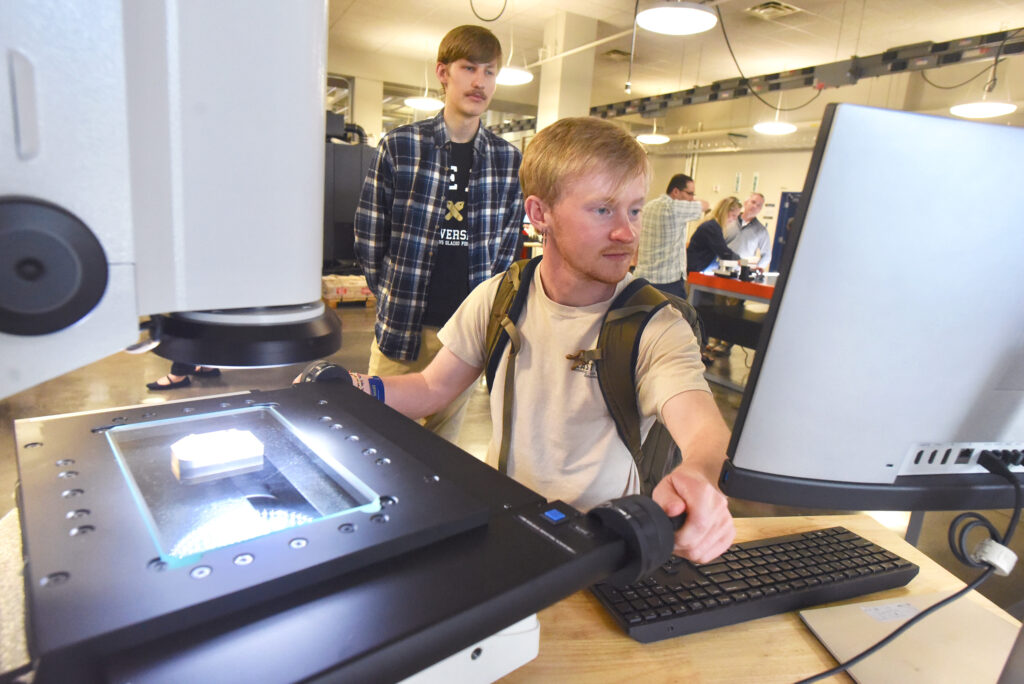
Allegheny College has been awarded a $399,777 grant from the National Science Foundation (NSF) through its Enabling Partnerships to Increase Innovation Capacity (EPIIC) program. The initiative is designed to broaden participation in the nation’s innovation ecosystems, particularly in advancing key technologies such as advanced manufacturing, artificial intelligence, biotechnology, quantum information science, semiconductors, and novel materials.
A Multi-Institutional Partnership
Allegheny’s project, entitled PRISTINE – Partnerships to Promote Research & Innovation for SocieTal Impact & Novel Engagements – is part of a collaborative proposal involving Xavier University of Louisiana, the nation’s only Catholic historically Black college, and Southern Connecticut State University, each of which has also received EPIIC awards of similar scale.
PRISTINE operates as a community of practice, bringing together primarily undergraduate institutions (PUIs) from across the Eastern US to enhance partnerships with regional industries and businesses that provide applied research experiences for students and to develop institutional capacity to enhance each school’s research enterprise. This will lead to stronger federal funding applications for use-inspired research. Together, the three institutions will share strategies, resources, and outcomes to ensure a wider impact across multiple regions and sectors.
The cohort’s goals include the following:
- Enhancing capacity to facilitate use-inspired research;
- Leveraging experiential learning to develop credentialed workforce development programs;
- Fostering industry-academic collaborations; and
- Providing research development opportunities to support faculty grant seeking.
Byron Rich, MFA, Assistant Provost of Academic Innovation & Associate Professor of Art serves as the project’s Principal Investigator (PI), with Amber Pouliot, Ph.D., Director, Foundation & Corporate Relations as Co-PI.
National and Regional Impact
Allegheny’s node of PRISTINE will largely focus on and operate out of ALIC @ Bessemer, an economic and workforce development branch campus currently open to area residents working or leading companies in the manufacturing sector. ALIC bridges the liberal arts with advanced manufacturing, digital fabrication, design and emerging technologies. ALIC @ Bessemer offers both degree-seeking and non-degree-seeking students opportunities to participate in use inspired research through its partnerships with area manufacturers and businesses.
EPIIC allows Allegheny to scale the reach of ALIC @ Bessemer while building the partnerships that translate liberal arts creativity into technological innovation,” said Principal Investigator Byron Rich. “It’s an investment not only in our students and faculty, but also in the economic vitality of our region and beyond.
“Funding from the EPIIC program will enhance the College’s competitiveness in the federal funding landscape, ensuring that our world-class faculty have the resources necessary to carry out their innovative research programs and support student research experiences,” said Co-PI Amber Pouliot.
By pairing Allegheny’s distinctive liberal arts model with innovation-driven collaboration, the College is helping to ensure that primarily undergraduate institutions play a central role in shaping the future of technology, workforce readiness, and societal impact.


